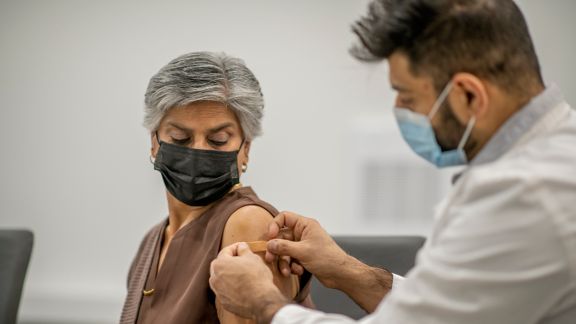ND HOPES Suicide Prevention Initiative

Problem
Rural North Dakota is disproportionately impacted by suicide.
North Dakota is a vastly rural state with a steadily increasing suicide rate. Between 2000 and 2018, the suicide rate rose 84 percent, the second highest state increase. Since then, the number of suicide incidents reported in clinics, hospitals, and emergency departments increased by one-third.
Nearly half of North Dakota’s population of 779,094 lives in rural areas where the rate of suicide is significantly greater (20.6/100,000 in rural areas, 13.5/100,000 in urban areas). In addition to a large rural population, the state is composed of approximately 55,000 veterans and 169,115 youth ages 10 to 24, two populations that are disproportionately affected by suicide and would benefit from a comprehensive, tailored approach to suicide prevention.
Solution
UND and NORC are implementing ND HOPES, a comprehensive approach to suicide prevention.
The University of North Dakota (UND) and NORC were awarded a five-year cooperative agreement from the Centers for Disease Control and Prevention (CDC) to implement a comprehensive approach to suicide prevention. Called North Dakota Healthcare, Opportunity, Prevention, and Education in Suicide prevention, or ND HOPES, the initiative provides services, resources, and supports to residents of a 21-county region in western North Dakota, with targeted programs and services for rural communities, veterans, and youth. ND HOPES helps schools, hospitals, clinics, and community-based organizations in the western part of the state implement evidence-based practices; raises public awareness via targeted communications; and continually adjusts its approach based on routine monitoring of surveillance data.
Result
ND Hopes will provide a sustainable suicide prevention infrastructure.
Using a multi-tiered approach to suicide prevention driven by programmatic gaps and routine surveillance, ND HOPES aims to create a sustainable suicide prevention infrastructure and reduce suicide morbidity and mortality by 10 percent among western North Dakota residents as well as among rural residents, veterans, and youth residing in the region.
Learn More About the Study
Contact Information
Related Tags
Project Leads
-
Brett Harris
Senior Research ScientistProject Director -
Hildie Cohen
Senior Research DirectorProject Manager -
Tracy McPherson
Principal Research ScientistEvaluation Director











